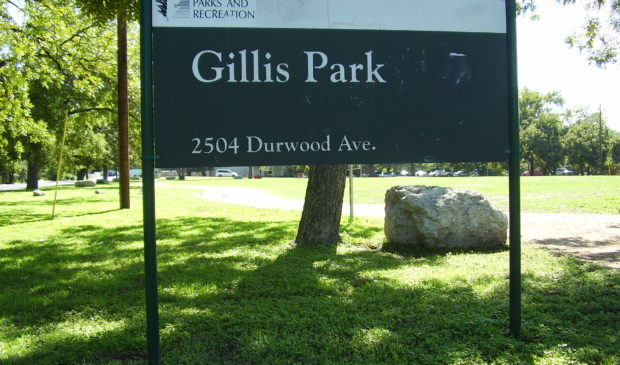Human Rights Commission finds the naming of Austin public spaces inequitable
Thursday, November 30, 2017 by
Jessi Devenyns In Austin, streets have their names changed from time to time. City parks, however, rarely seem to undergo name changes, but the Human Rights Commission wants to change that.
On Nov. 27, the Human Rights Commission considered amending its previous recommendation to City Council’s Gender Equity Resolution to require a more gender-neutral approach to the naming of parks and public spaces in Austin.
In an effort to understand the requirements to bestow a new name on a public place, Gregory Montes, park development coordinator for the Parks and Recreation Department, was asked to clarify the process for the renaming of PARD spaces, and in particular the parks. The city, too, was invited to come explain the methodology for street naming, but according to Commissioner Ashley Normand, “They politely declined.”
The ratio of male to female named public places is undeniably skewed. Currently, out of the 107 named parks in Austin, 38 are named for men, 14 for women and 6 for a family name. The remaining 49 are not named after a person. Named parks facilities have a similar ratio.
Montes described the approach to renaming Austin parks as community-driven. He explained that a request for naming must come directly from a member of the public who approaches the Parks and Recreation Department with an application that includes the name suggestion as well as a reason for why the name should be considered. Once a member of the public makes a request, the parks department then has 90 days to work with the Public Information Office, who will inform the public of the request to determine if there are any counter-name applicants. Vetted applicants will then go to the Parks and Recreation Board, which then makes a recommendation to Council.
Decisions directly from Council, however, are the exception to the rule. If Council decides to give a park a new identity, it does not have to ask the public to weigh in on the decision. It simply has to vote on the newly suggested name.
Based on Montes’ explanation of the current process, Commissioner Swati Avashia concluded, “I do think (PARD’s) process for outreach is inequitable.”
Despite there being a clear process in place, Montes said that he has not heard of a park being renamed in the eight years he’s worked with the city.
Normand noted that the static nature of park names is part of the reason why Austin has such a disparity between the number of men’s names used and the number of women’s.
Montes claimed that the disparity in the ratio of male to female appellations is unintentional, and that the issue of gender equity in naming never came up specifically. “I’m not sure why it didn’t,” he said.
He said that the majority of parks are named for a creek running through it or the street it is on “to make it easy for the public to find it.”
Normand encouraged PARD to use these parks with location-based names as an opportunity to rectify the gender imbalance by renaming them after notable women.
The commission considered streets as another avenue through which to equalize the gap between the number of male and female names. However, Normand said that because the process for naming streets is more convoluted than that used for naming parks, “I think streets might be a tougher sell.” She did note that “For about $45 the city could perform a gender equity study of street names.”
If nothing else, she’d like to see the results of the study so that Austin could numerically see a reflection of its gender inequality in its name choices, she said.
The Human Rights Commission will vote at its next meeting in January to decide if it will further amend its original Oct. 23rd recommendation to include unbiased consideration of gender when naming public spaces.
Photo by WhisperToMe – Own work, Public Domain, Link.
The Austin Monitor’s work is made possible by donations from the community. Though our reporting covers donors from time to time, we are careful to keep business and editorial efforts separate while maintaining transparency. A complete list of donors is available here, and our code of ethics is explained here.
You're a community leader
And we’re honored you look to us for serious, in-depth news. You know a strong community needs local and dedicated watchdog reporting. We’re here for you and that won’t change. Now will you take the powerful next step and support our nonprofit news organization?








